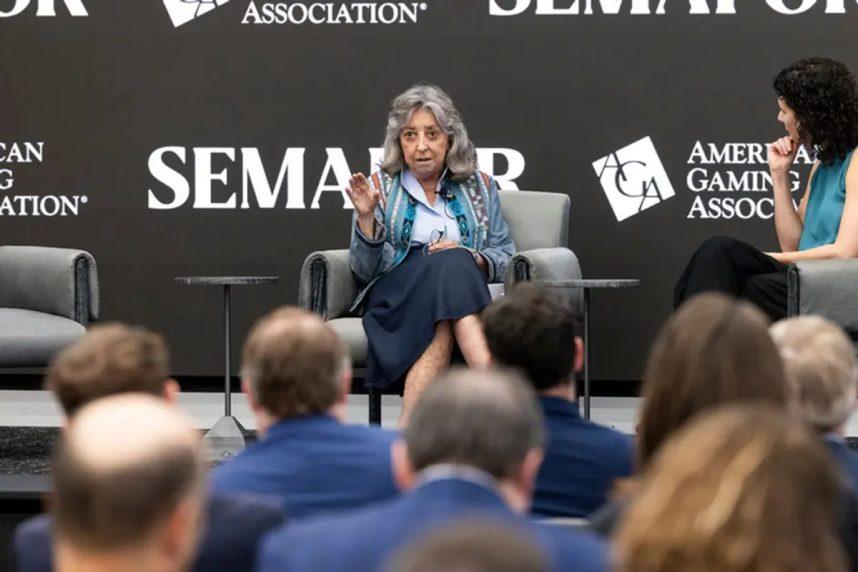Published on: September 23, 2024, 12:38h.
Last updated on: September 23, 2024, 12:38h.
United States Representative Dina Titus (D-Nevada) is from one of the 15 states where commercial casinos still permit indoor tobacco use. Her recent comments suggesting that modern ventilation systems in casinos have made indoor smoking more tolerable were met with criticism from a prominent public health organization.

Titus attended an event in Washington, D.C., last Thursday titled “Betting on the Future of Gaming.” The event, hosted by news outlet Semafor and sponsored by the American Gaming Association, featured discussions related to the industry.
In her remarks, Titus, who represents Nevada’s First Congressional District, which includes Clark County and Las Vegas, emphasized that casinos in her state prioritize self-regulation and take proactive measures to ensure the safety of both employees and guests.
Regarding efforts to ban smoking in casinos, Titus highlighted the technological advancements in modern casinos that help improve indoor air quality. She mentioned that even slot machines are equipped with filters to eliminate smoke pollutants.
When asked about concerns raised by constituents regarding smoking in casinos, Titus, who chairs the Congressional Gaming Caucus, noted that such issues are minimal due to the improvements made by casinos.
“Not lately, because of all the improvements that [casinos] have made,” Titus stated.
Response from Clean Air Group
Americans for Nonsmokers’ Rights (ANR) issued a statement criticizing Titus’ stance on indoor smoking in casinos.
ANR President and CEO Cynthia Hallett urged Titus to prioritize the well-being of her constituents and advocate for smoke-free environments in casinos to protect public health.
Hallett referenced the American Society of Heating, Refrigerating, and Air-Conditioning Engineers’ perspective, highlighting that ventilation systems in casinos do not effectively eliminate harmful carcinogens from secondhand smoke.
Engineers designing ventilation systems have emphasized that casinos’ claims of protecting individuals from secondhand smoke are misleading. These systems primarily address odor, not carcinogens,” Hallett emphasized.
Despite acknowledging the concerns around secondhand smoke, Titus suggested that the Culinary Union, a prominent trade group representing casino workers, could leverage its influence to advocate for smoke-free environments in casinos.
Impact of Secondhand Smoke
The Centers for Disease Control and Prevention (CDC) supported Hallett’s arguments by stating that ventilation systems are inadequate in removing secondhand smoke from indoor spaces.
A CDC report titled “What Happens in Vegas, Stays in Your Lungs” highlighted elevated levels of Particulate Matter (PM) in casinos where smoking is permitted, posing health risks to individuals exposed to secondhand smoke.
CDC tests conducted in Las Vegas casinos revealed high PM2.5 levels in both smoking and supposedly smoke-free areas, indicating the persistent presence of harmful pollutants. The CDC emphasized the need for 100% smoke-free environments in casinos to safeguard the health of workers and patrons.
Nevada is among the few states where indoor smoking is allowed in casinos, raising concerns about public health and the need for strict smoke-free policies.


